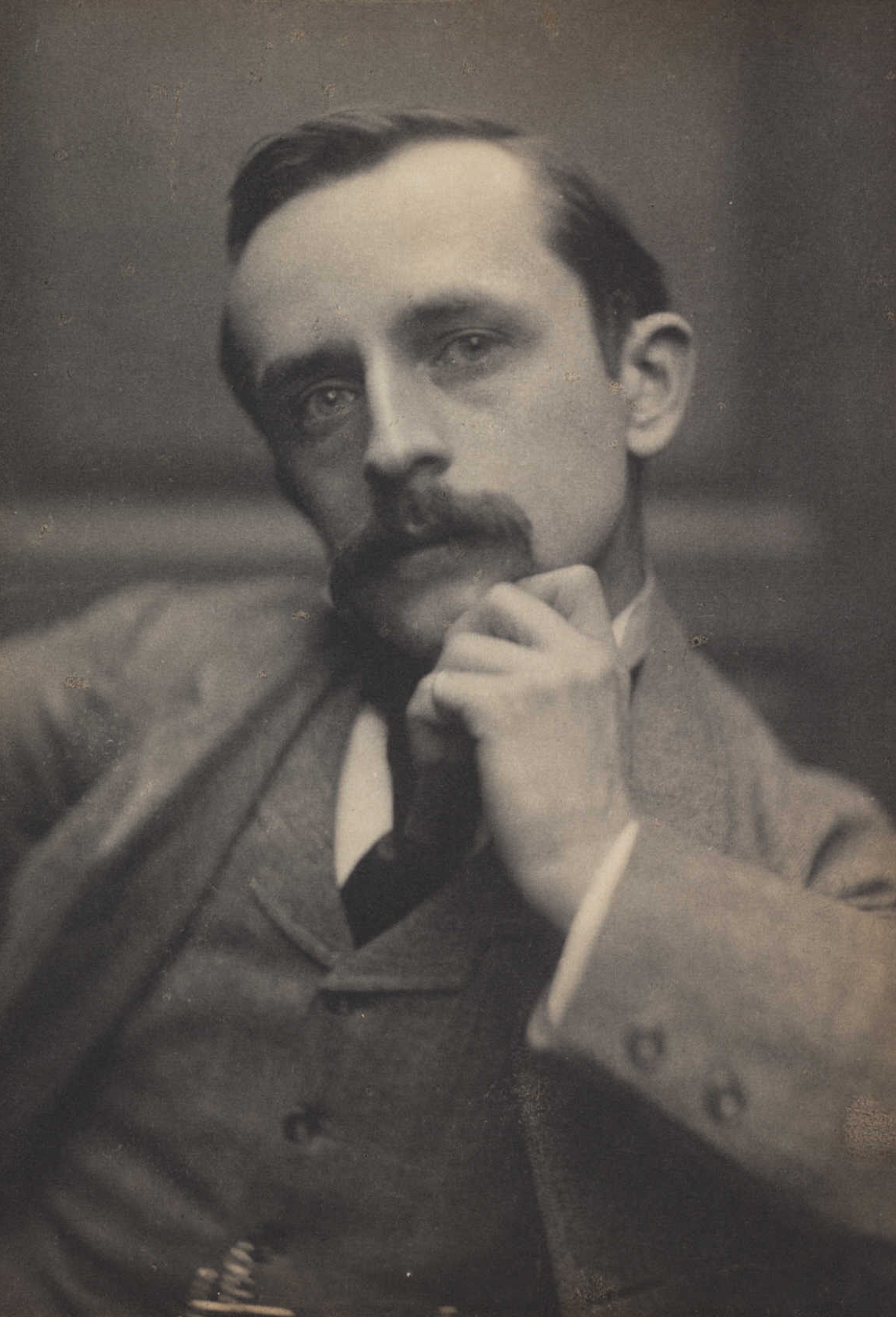Contributed by Andrew Maunder
“War itself is horrible but the misfortune it brings helps a man to find his soul” – Herbert Beerbohm Tree, 18 April 1915.
 The British Film Institute’s new DVD of silent films of Shakespeare Play On inevitably features the legendary actor-manager Sir Herbert Beerbohm Tree (1852-1917). In the early years of the twentieth century Tree was acclaimed as Britain’s greatest actor. He ran his company from His Majesty’s Theatre in London’s West End and became famous for a string of lavish Shakespeare productions in which he generally starred. The Shakespeare plays got a mixed reception; audiences loved them but some critics questioned why Shakespeare’s verse was so heavily cut in order to accommodate gimmicks – real rabbits in A Midsummer Night’s Dream, a gondola in The Merchant of Venice and flying witches in Macbeth.
The British Film Institute’s new DVD of silent films of Shakespeare Play On inevitably features the legendary actor-manager Sir Herbert Beerbohm Tree (1852-1917). In the early years of the twentieth century Tree was acclaimed as Britain’s greatest actor. He ran his company from His Majesty’s Theatre in London’s West End and became famous for a string of lavish Shakespeare productions in which he generally starred. The Shakespeare plays got a mixed reception; audiences loved them but some critics questioned why Shakespeare’s verse was so heavily cut in order to accommodate gimmicks – real rabbits in A Midsummer Night’s Dream, a gondola in The Merchant of Venice and flying witches in Macbeth.
Unlike many of his contemporaries, Tree was willing to embrace the new medium of cinema. The BFI DVD shows him in a scene from the film of King John (1899) which has the distinction of being the first Shakespeare play to be filmed. The scenes register Tree’s old fashioned acting style.
When war was declared Tree, who was a friend of Prime Minister, Herbert Asquith, decided that it was his duty to put on patriotic plays. He began with Drake in which the Elizabethan swashbuckler is shown defeating the Spanish Armada. This was followed by Henry IV Part 1, in which Tree played Falstaff. Shakespeare was part of Britain’s cultural history and was seen as a way of reminding people of the kinds of civilized values being fought for.
In 1915, Tree was temped back the cinema- a form of entertainment which became increasingly popular during the war. Tree had an international reputation and was signed by Hollywood director D.W. Griffith for $100,000 to star in Macbeth for the Triangle-Reliance company. Tree thought the choice of Macbeth “ideal” at a time war because “it is, throughout, a story of action.” For the role of Lady Macbeth, Tree chose Constance Collier who earlier had played Nancy to his Fagin in Oliver Twist.
 When he arrived in Hollywood, “Sir Tree” was welcomed at the train station by cowboys firing shots into the air. Instead of filming on a stage set, Californian locations were made to look like Scotland. There were enormous sets and hundreds of extras. There was great excitement about the special effects which could be used to show the witches and Banquo’s ghost.
When he arrived in Hollywood, “Sir Tree” was welcomed at the train station by cowboys firing shots into the air. Instead of filming on a stage set, Californian locations were made to look like Scotland. There were enormous sets and hundreds of extras. There was great excitement about the special effects which could be used to show the witches and Banquo’s ghost.
But when the prestigious film premiered in New York and then London on 22 June 1916 it was not a success. Neither Tree nor Collier had mastered the new art of film-acting. Cynthia Asquith, daughter-in-law of the Prime Minister, noted their “stomach ache faces” deployed to convey emotion. The film performed so badly that Tree’s Hollywood contract was terminated.
The Macbeth venture was Tree’s last big production. He returned to Britain and leased his theatre to the producers of the exotic musical Chu Chin Chow.
Tree died following pulmonary complications from a broken leg, in 1917.
The BFI DVD is a fascinating insight into the filmic traditions of an earlier age. It’s a great shame that no copies of Macbeth remain to be included.
Originally posted on the 1st August, 2016


